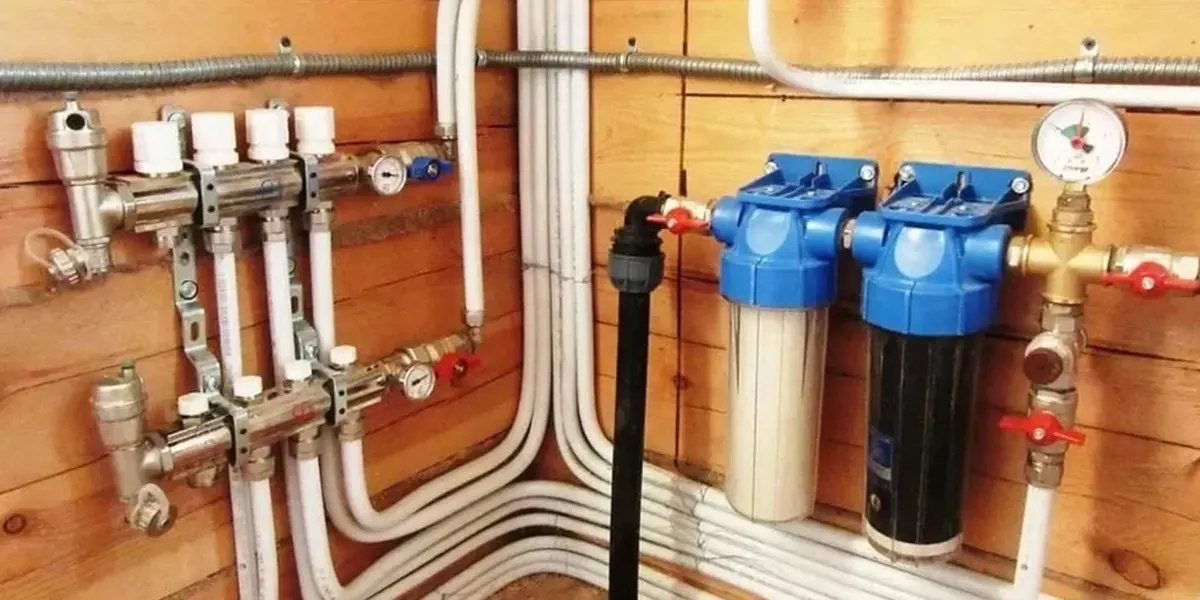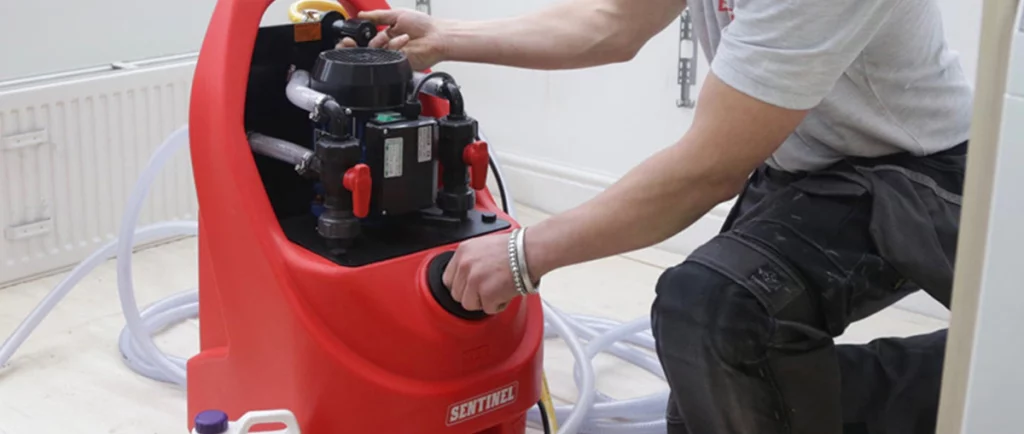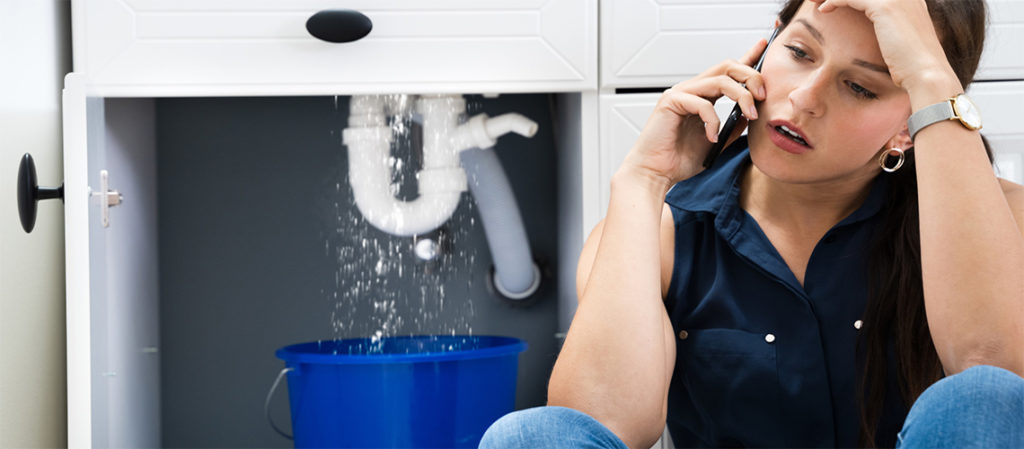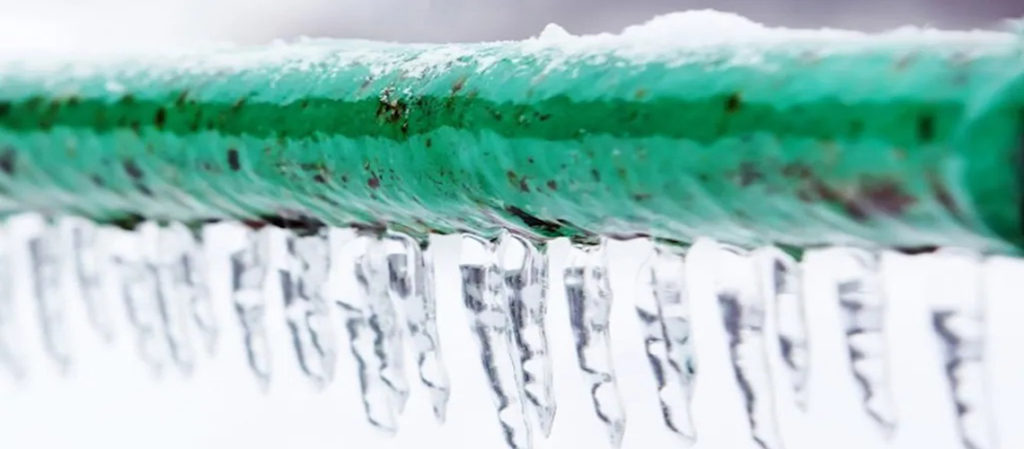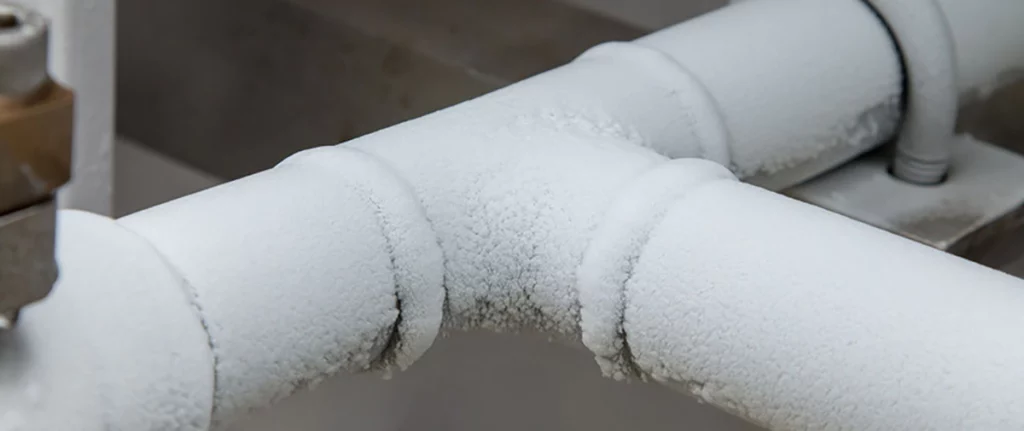Maintaining your home’s plumbing system in top condition is crucial to ensure functionality, prevent costly repairs, and extend the lifespan of the system.Here is a table summarising the key actions you can take to maintain your home’s plumbing system in top condition:
| Activity | Description | Frequency |
| Regular Inspections | Hire a professional to inspect the entire plumbing system for any issues. | Annually |
| Monitor Water Pressure | Check and adjust water pressure to be within the safe limits (40-60 psi). | As needed |
| Prevent Clogs | Avoid disposing of grease down drains and use strainers to catch debris. | Continuously |
| Clean Drains | Use a mixture of baking soda and vinegar followed by hot water to clean. | Monthly |
| Insulate Pipes | Insulate exposed pipes to prevent freezing and bursting in cold weather. | Before winter |
| Fix Leaks Promptly | Repair leaks as soon as detected to prevent damage and water waste. | Immediately on detection |
| Avoid Chemical Cleaners | Use chemical drain cleaners sparingly to avoid pipe corrosion. | Sparingly |
| Service Your Water Heater | Drain and remove sediment from your water heater to maintain efficiency. | Annually |
| Check Faucet Washers and Seals | Replace worn washers and seals in faucets to prevent leaks. | As needed |
| Clean Faucet Aerators | Remove and clean aerators to ensure smooth water flow. | Every 3-6 months |
| Educate Your Household | Teach family about what should not be flushed or poured down drains. | Continuously |
| Conserve Water | Promote water-saving practices among household members. | Continuously |
| Know Main Water Shut-Off Location | Ensure everyone knows where the main water shut-off valve is located. | Once, then as needed |
| Have Basic Tools Handy | Keep essential plumbing tools available for quick fixes or emergencies. | Continuously |
This table offers a structured guide to routine maintenance and emergency preparedness for your home’s plumbing system, ensuring it operates efficiently and effectively over the long term.
Here are some key strategies and tips to help you keep your plumbing in excellent shape:
Contents
- 1 Regular Inspections
- 2 What Does a Regular Inspection Include?
- 3 How Often Should You Conduct Inspections?
- 3.1 DIY Inspection Tips
- 3.2 Prevent Clogs
- 3.3 Protect Your Pipes
- 3.4 Insulate Your Pipes
- 3.5 Prevent Freezing
- 3.6 Avoid Chemical Drain Cleaners
- 3.7 Regular Maintenance Checks
- 3.8 Manage Water Pressure
- 3.9 Install Water Softeners in Hard Water Areas
- 3.10 Know Your Pipes
- 3.11 Maintain Appliances and Fixtures
- 3.12 Educate Your Household
- 4 Be Prepared for Emergencies
Regular Inspections
Regular inspections are a critical component of maintaining your home’s plumbing system. They help identify potential problems before they become severe, ensuring that your plumbing operates efficiently and extends its lifespan. Here’s a detailed look at why regular inspections are essential and how to conduct them:
Importance of Regular Plumbing Inspections
- Early Problem Detection: Regular inspections can reveal issues such as leaks, rust, and wear that might not yet be causing visible problems but could lead to significant damage if left unaddressed.
- Cost Savings: Catching and fixing small problems early can prevent costly emergency repairs and potential damage to your home, such as water damage from leaks.
- Efficiency and Longevity: Inspections help ensure that your plumbing system operates efficiently, conserving water and reducing wear on pipes and fixtures, thereby extending their service life.
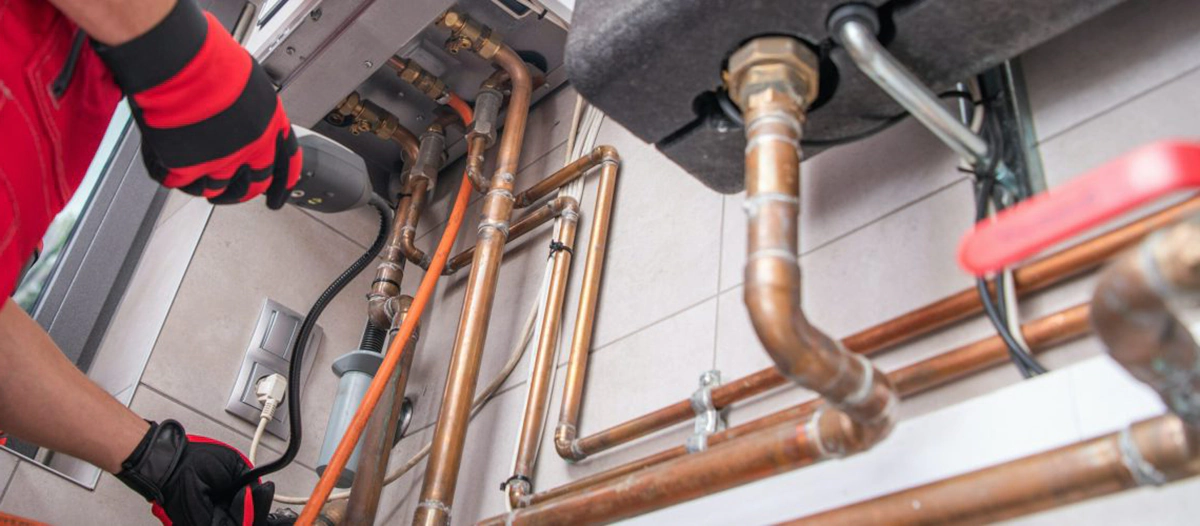
What Does a Regular Inspection Include?
A comprehensive plumbing inspection should cover all aspects of your home’s plumbing system:
- Pipes and Drains: Check for leaks, corrosion, and proper fastening. Inspect for signs of blockage or slow drainage.
- Faucets and Toilets: Check for leaks and proper operation. Inspect internal mechanisms like flush assemblies and supply valves.
- Water Heater: Check for signs of rust or leakage. Inspect the pressure relief valve and the anode rod, and ensure the temperature setting is safe (typically around 120°F).
- Sump Pump: Test the sump pump (if present) by pouring water into the pit to make sure it activates automatically and drains quickly.
- Water Pressure: Measure water pressure to ensure it is within a safe range (40-60 psi). High pressure can cause damage to pipes and fixtures.
- Sewer System: Inspect for any signs of blockage or sewage backup. This may include professional inspection with a camera.
How Often Should You Conduct Inspections?
- Annual Inspections: It’s advisable to have a professional plumber inspect your plumbing system once a year. This professional inspection can catch issues that you might not notice.
- Seasonal Checks: Apart from the annual check-up, it’s wise to perform seasonal inspections, especially before the winter months to ensure pipes are insulated and the system is ready for cold weather.
DIY Inspection Tips
While professional inspections are essential, there are several things homeowners can do themselves:
- Listen for Dripping Sounds: This can indicate a leak even if it’s not visible.
- Check for Water Stains: On ceilings and walls, as they can indicate hidden leaks.
- Monitor Your Water Bill: An unexpected increase can suggest a leak.
- Use Dye Tablets for Toilets: To check for leaks from the tank into the bowl.
- Regularly Test Faucets and Toilets: To ensure they are operating correctly and efficiently.
Regular plumbing inspections are a proactive measure that helps maintain your home’s plumbing system in top condition, prevent disruptions, ensure safety, and save on costly repairs. Whether conducted by a professional or as part of your DIY home maintenance, these inspections are integral to a well-maintained home.
Prevent Clogs
- Avoid Dumping Grease Down Drains: Grease can solidify in the pipes and cause blockages. Instead, dispose of grease in the trash.
- Use Drain Strainers: Place strainers in sinks and showers to catch hair and other debris that could clog the drains.
- Regularly Clean Drains: Use a mixture of baking soda and vinegar followed by hot water to keep drains clear without the harsh effects of chemical cleaners.
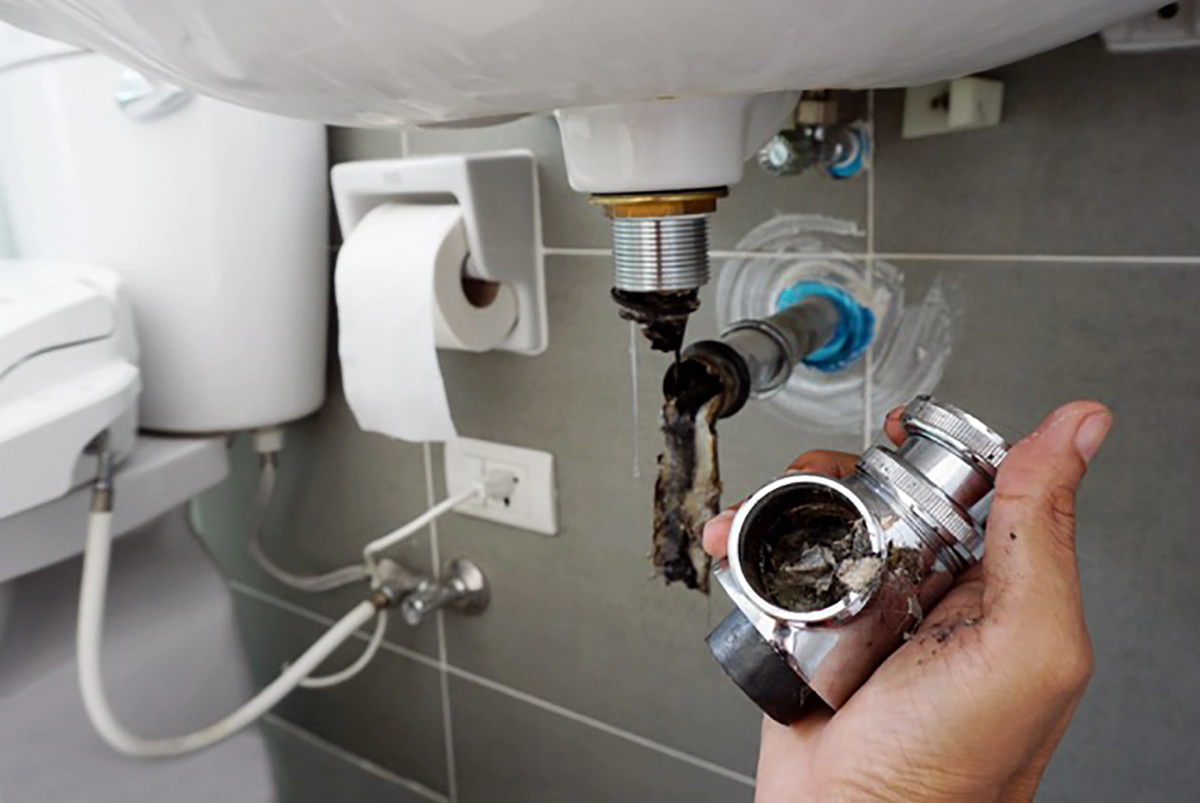
Protect Your Pipes
Protecting your home’s plumbing pipes is crucial to prevent damage and ensure the longevity and efficiency of your entire plumbing system. Here are key strategies and tips on how to protect your pipes effectively:
Insulate Your Pipes
- Why Insulate? Insulating pipes, especially those exposed to external walls or in unheated areas like basements, garages, and attics, can prevent them from freezing and bursting during cold weather.
- How to Insulate: Use foam pipe insulation sleeves that match the diameter of your pipes. These sleeves can be easily installed by cutting them to length and wrapping them around the pipes. For extra protection in extremely cold areas, consider using heat tape before insulating.
Prevent Freezing
- Keep the Heat On: Even if you are away during the winter, keep your home’s heater on at a minimum of 55°F to help prevent pipes from freezing.
- Let Faucets Drip: Allowing a slight drip from faucets connected to pipes that run through unprotected spaces can prevent pressure from building up and thus reduce the risk of a burst pipe.
- Seal Leaks: Seal any holes or cracks near pipes with caulking to keep cold air out, especially where pipes run through walls or floors.
Avoid Chemical Drain Cleaners
- Corrosive Effects: Chemical drain cleaners can corrode metal pipes and harm the integrity of your plumbing system over time.
- Alternatives: Use a plunger or a plumber’s snake to clear clogs. For maintenance, a mixture of vinegar and baking soda followed by hot water can help keep drains clear without damaging pipes.
Regular Maintenance Checks
- Inspect for Leaks: Regularly check under sinks, around toilets, and along exposed pipes for any signs of leaks.
- Check for Corrosion: Look for discoloration, stains, dimpling, or flaking on your pipes, which can indicate corrosion. If you find corrosion, consult with a professional plumber to determine the cause and remedy.
Manage Water Pressure
- Importance of Proper Pressure: High water pressure can stress your plumbing system and increase the risk of leaks.
- Monitor and Adjust: You can check your home’s water pressure with a gauge. If the pressure exceeds 60 psi, consider installing a pressure reducer to protect your pipes.
Install Water Softeners in Hard Water Areas
- Scale Build-up: Hard water can cause scale buildup inside pipes, reducing flow and increasing pressure.
- Benefits of Softeners: Water softeners can remove minerals from the water, preventing scale and prolonging the life of your pipes.
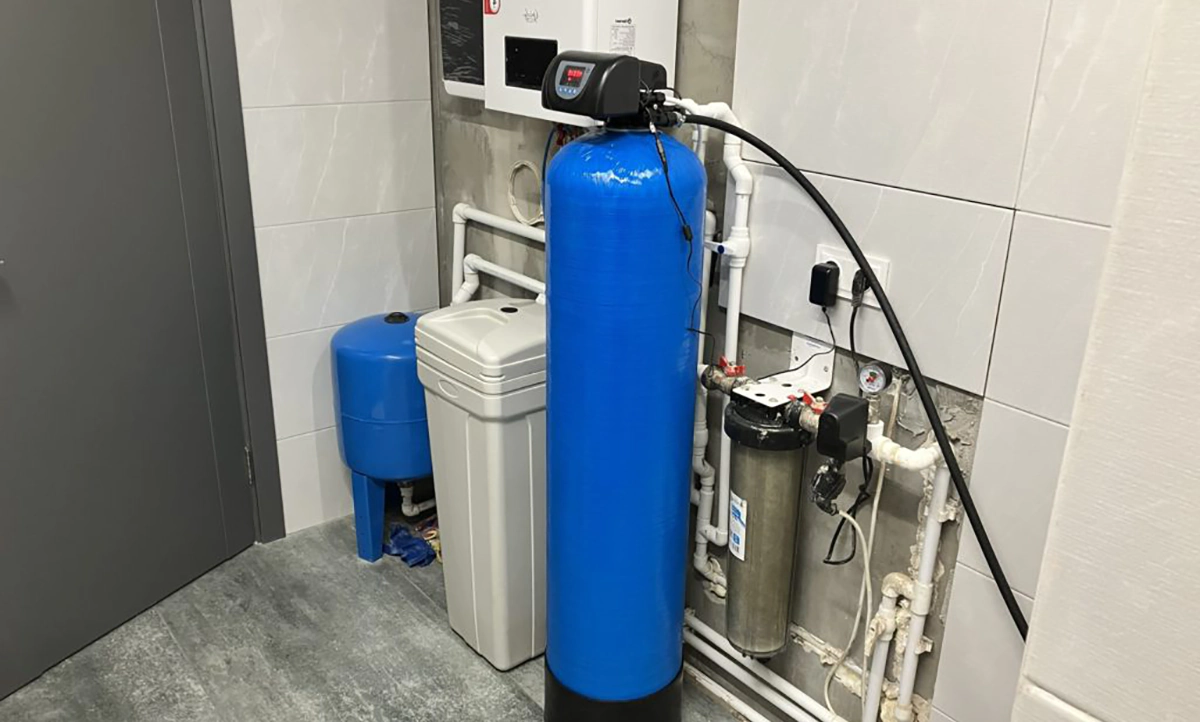
Know Your Pipes
- Material Matters: Different materials have different vulnerabilities. For example, copper pipes are susceptible to corrosion from pH imbalances, while PVC pipes can become brittle from UV exposure.
- Keep Records: Maintain a detailed record of the types of pipes in your home and their installation dates.
Protecting your pipes is not just about preventing problems; it’s also about extending the life of your plumbing system and ensuring it runs efficiently. By following these tips, you can safeguard against common issues like leaks, bursts, and clogs, ultimately saving time, money, and inconvenience in the long run.
Maintain Appliances and Fixtures
- Service Your Water Heater: Drain and remove the sediment from your water heater annually to prevent corrosion and improve efficiency.
- Check Faucet Washers and Seals: Regularly check and replace worn washers and seals in faucets to prevent drips and leaks.
- Clean Faucet Aerators: Remove and clean aerators on faucets to ensure an even flow of water.
Educate Your Household
- Be Mindful of What Goes Down the Toilet: Educate your family about what should not be flushed down the toilets (e.g., no sanitary products, wipes, or excessive toilet paper).
- Conserve Water: Encourage habits that save water, like turning off the tap while brushing teeth or fixing drips and leaks promptly.
Be Prepared for Emergencies
Being prepared for plumbing emergencies is crucial because unexpected issues like major leaks, burst pipes, or sewage backups can cause significant damage if not addressed quickly. Here are key strategies and tips to ensure you are ready to handle plumbing emergencies effectively:
Know Your Plumbing System
- Locate Main Shut-Off Valve: Everyone in your household should know where the main water shut-off valve is located. This valve controls the flow of water into your home and can be crucial in stopping water flow in case of a major leak.
- Understand Critical Components: Familiarise yourself with the location and function of other important plumbing components, such as the water heater shut-off valve, the main sewer line clean-out, and appliance water supply lines.
Keep Essential Tools Handy
- Plumber’s Wrench: A must-have for tightening or loosening pipe fittings.
- Plunger: Useful for clearing simple clogs in toilets, sinks, and drains.
- Pipe Tape: Also known as Teflon tape, it’s used for sealing threaded pipe joints.
- Emergency Patch Kit: Useful for temporarily fixing leaking pipes until professional help arrives.
- Hand Auger: A more powerful tool for clearing stubborn clogs deeper within your plumbing system.
Create an Emergency Kit
- Assemble a Kit: Include items such as heavy-duty gloves, goggles, a flashlight, and a bucket to catch water from leaks.
- Include Instructions: Add quick reference guides or instructions for shutting off water or gas, which can be vital in an emergency.
Have a List of Emergency Contacts
- Local Plumber: Keep contact information for a reliable local plumber who offers emergency services.
- Utility Companies: Have phone numbers for your water and gas companies in case you need to report a problem or service disruption.
- Insurance Information: Know your home insurance details and how to file a claim in case of water damage.
Regular Drills and Checks
- Conduct Drills: Periodically run drills with your household to practise locating and turning off the main water shut-off valve.
- Inspect Emergency Equipment: Regularly check the condition and functionality of your emergency tools and kit. Replace or repair any faulty items.
Preventative Measures
- Regular Maintenance: Regular maintenance and inspections can prevent many emergencies. Address small leaks and repairs promptly to avoid bigger issues.
- Weatherproof Your Home: In cold climates, take steps to prevent pipe freezing and bursting, such as insulating pipes and ensuring your home is adequately heated.
Stay Calm and Informed
- Educate Yourself: Learn basic emergency responses like how to apply a pipe clamp or use a pipe wrap to manage minor leaks.
- Remain Calm: Keeping a clear head will help you manage the situation more effectively. Assess the situation, shut off the water if necessary, and call for professional help.
By following these guidelines, you can maintain your home’s plumbing system in optimal condition, minimise emergency calls to plumbers, and ensure that your system serves you efficiently for many years. Regular maintenance not only prevents inconvenient disruptions but also protects the value of your home.
FAQs
Regular tasks include checking for leaks, inspecting faucets and fixtures for any signs of damage or wear, cleaning aerators, and testing water pressure.
It’s recommended to check for leaks at least once a month, especially in areas prone to moisture like under sinks, around toilets, and near water heaters.
Act quickly to repair leaks to prevent water damage. Depending on the severity of the leak, you may need to tighten connections, replace worn-out parts, or call a professional plumber for assistance.
Avoid pouring grease, oil, coffee grounds, and other debris down the drains. Use drain guards or screens to catch hair and large particles. Regularly flush drains with hot water and a mixture of baking soda and vinegar to keep them clear.
Yes, regular maintenance of your water heater can extend its lifespan and improve efficiency. Flushing the tank annually, checking the pressure relief valve, and inspecting the heating elements are essential tasks.



